Retail and leisure Preparing Manchesterâs indoor arena for Celine Dion is one thing. Getting it ready for the World Swimming Championships was quite another â after all, it didnât even have a pool.
The Manchester Evening șĂÉ«ÏÈÉúTV arena is one of the worldâs busiest venues for pop concerts. Acts from Madonna to U2 have graced its stage and when itâs not hosting chart-busting musical acts, it becomes an ice rink. But it might not seem like the most likely place for a major swimming competition, especially since it doesnât have a swimming pool. But that didnât put off the organisers of the World Swimming Championships last month. They needed a venue with 7,000 to 8,000 seats and Manchesterâs aquatic centre wasnât big enough. So they drafted in Davis Langdon in its project management guise, and pool firm AstralPool to build, and then dismantle, two temporary pools at the MEN arena.
AstralPoolâs temporary pool systems have been used at world championships in China and Australia. The Manchester competition pool was 25 x 25m and filled with more than 1 million litres of water while the 25 x 15m warm-up pool held 750,000 litres. Both were 2m deep and built from panels supported with 100 large steel cradles, which in turn were bolstered by a lattice of cables. The floor of the pool was made up from 1m2 panels. Each panel had eight legs to spread the loads evenly. And as a championship pool, where world records stand or fall by hundredths of a second, the dimensions had to be exactly right.
The pools were lined with PVC welded on site. The poolside was covered in decking with a drainage channel as the pools were filled level with the poolside and water slopped over the edge. Beneath the deck a network of pipes circulated the water through a modular filtration system that cleaned it up. Outside the arena, two generators and heat pumps warmed the water to competition temperature.
AstralPoolâs job was to install the pool while Davis Langdon had to convert the entire arena into a facility fit for a world-class swimming event. That meant doing everything from getting the power and heat plants in to installing the timing and media facilities and setting up the spectacular sound and vision show that gave the competition added glitz.
The biggest challenge for the team was the tight timeframe within which they had to build and remove the pool. The team had 16 days to set up before a test event, and then seven days to put the arena back to normal. In the end they were half a day ahead on both programmes â which was just as well as the arena was playing host to a Celine Dion concert immediately afterwards.
The arena only has one entrance but more than 30 containers had to come in to set up the pool alone, as well as endless deliveries for the other temporary facilities. Nor could trucks wait on the road outside as they would be blocking a major route into Manchester. âWe had to have timing slots to get the deliveries in without compromising people working around them. If something was late you rescheduled something else to fill the space,â says John Barclay, associate project manager at Davis Langdon.
Pumping millions of litres of water into the pools and getting them up to temperature in time also gave the team a few grey hairs. Davis Langdon got in touch with local water supplier United Utilities early and warned it about the extra water that would be needed. Some tweaks were made to the arenaâs valves to increase the rate of water delivery.
You canât say you will be seven days late; it has to happen. It is a very different mentality in the events world than in the construction world
John Barclay, Davis Langdon
The main difficulty was with the heating and power generation. The team started out with two heat pumps and one generator sitting outside the arena. Davis Langdon found out that the pumps needed more space between them to allow air to circulate than had been allowed on the plan. But the space was being shared with the BBCâs broadcasting vans so some vehicles had to move indoors and the space was rearranged.
That difficulty overcome, it was the turn of the generator to create trouble. This was used for light and sound as well as the heat pumps, and it broke down before the competition started and had to be replaced. The replacement then had a mechanical failure during the competition â fortunately between competition sessions â so the team bought in two generators.
âIf the temperature drops below a certain level, you canât run the event,â says Barclay. âWhen the generator went offline it was between sessions and when we got it back on stream we were within one degree of the threshold.â With hindsight having two generators was a better idea because there was a backup if one failed, he adds.
The challenges of the job were different to those of the average construction scheme. âYou canât say you will be seven days late; it has to happen. It is a very different mentality in the events world than in the construction world,â says Barclay. Not only was the work high speed, it was also hands-on. Barclay recalls dashing around with a roll of plastic and some gaffer tape to fix stairs made slippery by the swimmersâ wet feet because problems had to be resolved immediately.
âIt was not a question of calling the floor man; it was hands-on and that was very satisfying,â he says.
The Manchester project, including the pool and all the other facilities and costs, came in at ÂŁ4.5m. More records were broken at this championship than any other and Britain came away with a record medal haul.
A new, permanent swimming pool will be built in London for the Olympics in 2012. But with the Games already busting its original budget, some of the team behind the Manchester championships wonder whether a temporary pool could save some cash. âThe facility for the Olympics will have several thousand seats but we will probably never use it to its full seating capacity again,â says Barclay. Perhaps the O2 arena, also a home to major pop concerts, could provide a solution?
Specifier 23 May 2008
- 1
- 2
- 3
- 4
- 5
- 6
- 7
- 8
- 9
- 10
- 11
- 12
 Currently reading
Currently readingSwimming against the tide
- 13
- 14





















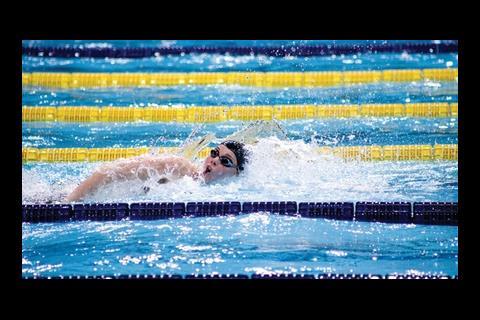
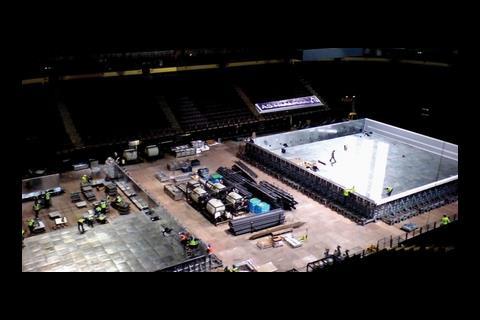
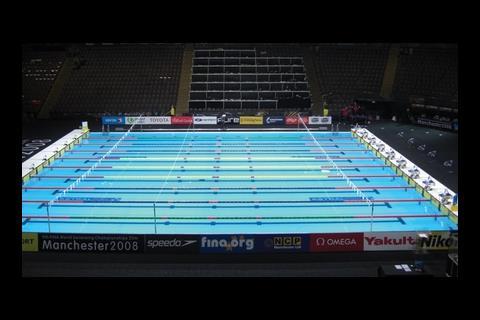
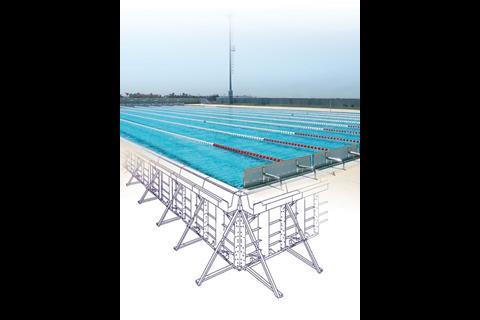
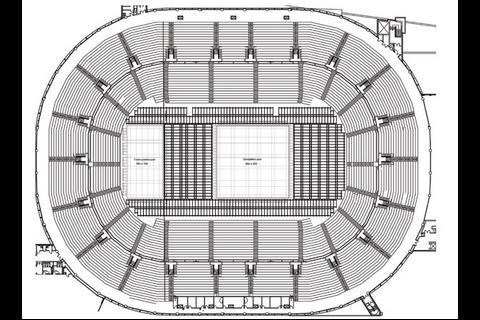








No comments yet